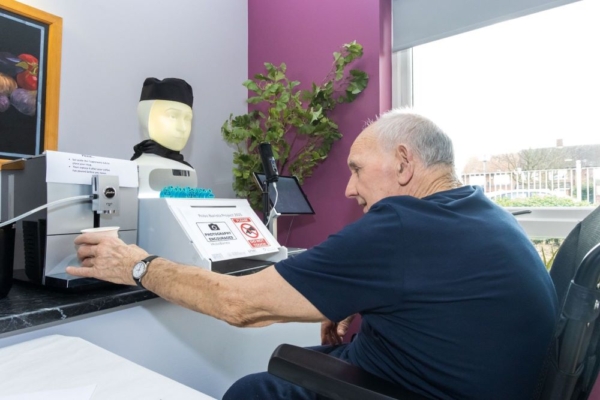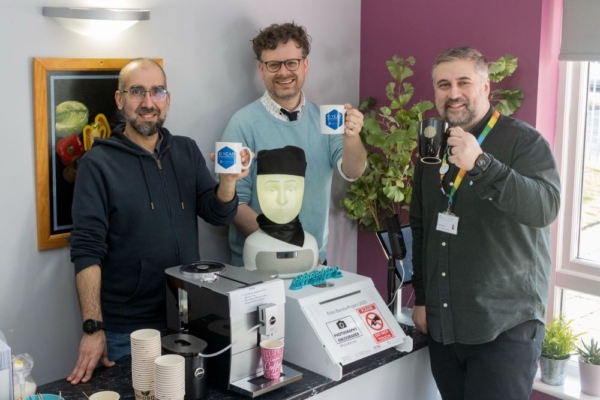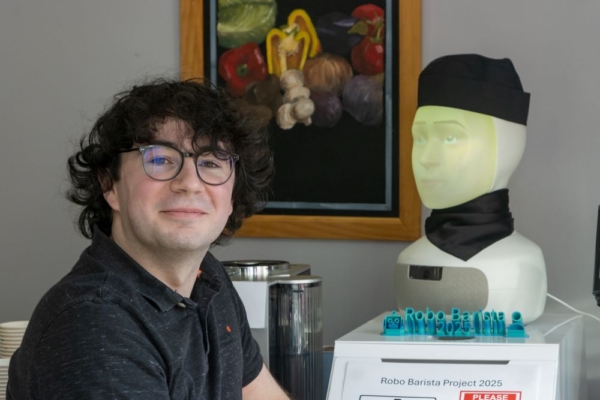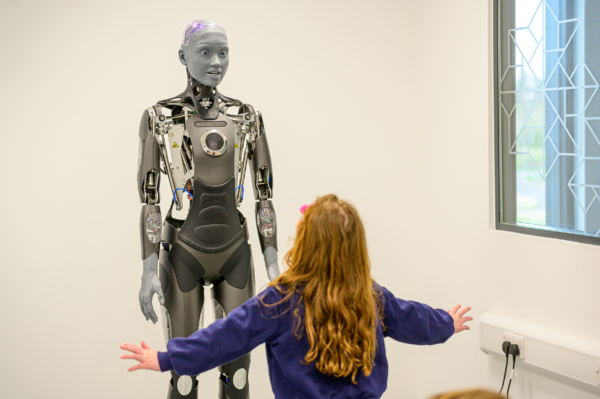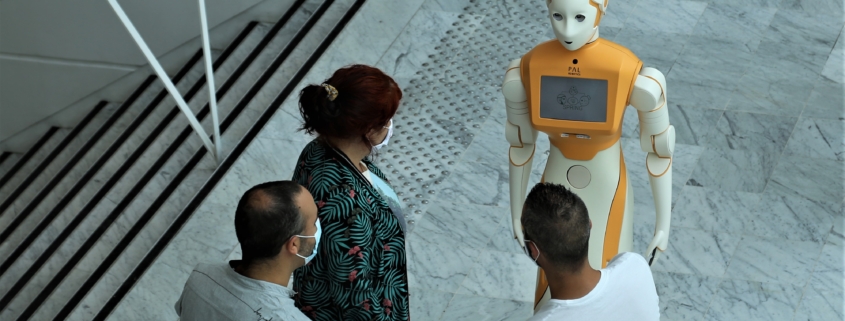Next-generation socially assistive robots have been successfully tested in a healthcare setting to assist patients, alleviate their anxiety, and relieve pressure on nursing staff as part of a hospital trial co-conducted by researchers from the National Robotarium in Paris, France.
The SPRING (Socially Assistive Robots in Gerontological healthcare) trial developed robots equipped with advanced artificial intelligence to enable natural conversations, understand patient needs, and assist hospital staff with routine tasks across three waves of experiments with elderly volunteers at Assistance Publique Hôpitaux de Paris.
Results show that robots were able to smoothly engage in social interactions like greeting patients, answering questions, and providing directions. Critically, robots are quickly demonstrating an ability to comprehend multi-party conversations – following dialogue between several individuals simultaneously.
By undertaking simple but repetitive duties, robots also reduced potential physical contact between clinicians and patients as part of the trial, with early feedback suggesting the use of socially assistive robots may lower infection transmission risk, while boosting productivity of nurses and doctors.
Anxiety and uncertainty can often precede a hospital visit and it is understood that this behaviour can be more pronounced in senior patients, with up to 20% of older adults suffering from the illness1. It is hoped that the availability of helpful and socially intelligent robots that can converse and answer initial screening questions whilst alleviating busy hospital staff could prove extremely beneficial in clinical settings.
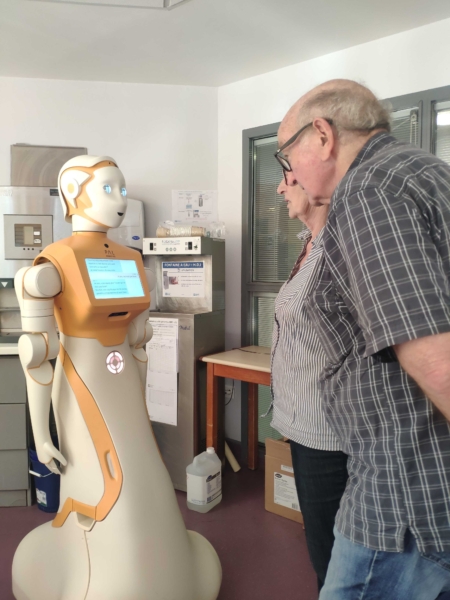
Patients and companions make their enquiries with the ARI robot
Professor Anne-Sophie Rigaud, Head of Department at Assistance Publique Hôpitaux de Paris, said:
“Our patients are increasingly interested in robotics and the evolution of hospital services, which they see as the logical evolution of our society. We believe that the ARI robot could in future become an essential element of patient care in hospitals, thanks to its capacity for social interaction and guidance.
“Older adults have also expressed that they’re pleased with the design of the robot and thought that it would be useful to provide information and companionship to patients with cognitive disorders.”
The feasibility of implementing the SPRING project has been made possible by academics at the National Robotarium who have made major advances in developing large language models (LLM) that enable robots to be capable of natural and fluent conversations with groups of people.
The Paris trials have provided key insights into how this emerging technology can enhance care delivery and safety whilst simultaneously advancing innovations in areas like computer vision, audio processing and human-robot interaction which have potential for further global applications.
The €8.4 million collaborative SPRING project includes researchers from Heriot Watt University, the National Robotarium, the Czech Technical University, Bar Ilan University Israel, University of Trento Italy, Assistance Publique Hôpitaux de Paris, PAL Robotics Spain, ERM AUtomatismes France, and is coordinated by Inria France. SPRING received support from Horizon 2020, a programme funded by the European Union.
The National Robotarium is part of the Data-Driven Innovation initiative, supported by £21 million from the UK Government and £1.4 million from the Scottish Government. The initiative aims to turn Edinburgh into the data capital of Europe and is part of the wider £1.3 billion Edinburgh and South-East Scotland City Region Deal.

Professor Oliver Lemon, academic co-lead at the National Robotarium
Oliver Lemon is a professor of AI and academic co-lead at the National Robotarium. He said:
“Today’s rapid advances in AI are truly inspiring and open up a world of possibilities for its positive impact on various sectors, including healthcare. One of the most significant contributions of robotics and AI is its ability to conserve resources and alleviate human workload, therefore providing valuable new tools for enhancing healthcare delivery.
“The prospect of robots seamlessly collaborating with hospital staff to enhance the patient experience is now closer to reality. Promising initial trials at Assistance Publique Hôpitaux de Paris have demonstrated our robot’s ability to converse effectively with patients and their companions simultaneously.
“We believe that the SPRING project marks a significant milestone in the development of interactive robotics, and we are proud of its achievements, while recognising the exciting challenges that lie ahead.”
UK Government Minister for Scotland, Malcolm Offord, said:
“The early trials into helper robots successfully demonstrates the great potential such advanced technology has to deliver vital support to health staff, improve patient care and prevent the spread of infections and diseases.
“The UK Government has invested £21 million in the National Robotarium helping foster world-leading research and support high quality jobs, investment and growth, as part of our more than £2.9 billion investment to level up across Scotland.”
Scottish Government Wellbeing Economy, Fair Work and Energy Secretary, Neil Gray, said:
“I welcome this progress using artificial intelligence to help ease the pressure on health service staff.
“With Scottish Government support, the National Robotarium is using cutting edge research to help drive innovation and artificial intelligence to deliver creative solutions to real world challenges.”


 Chris Barron
Chris Barron